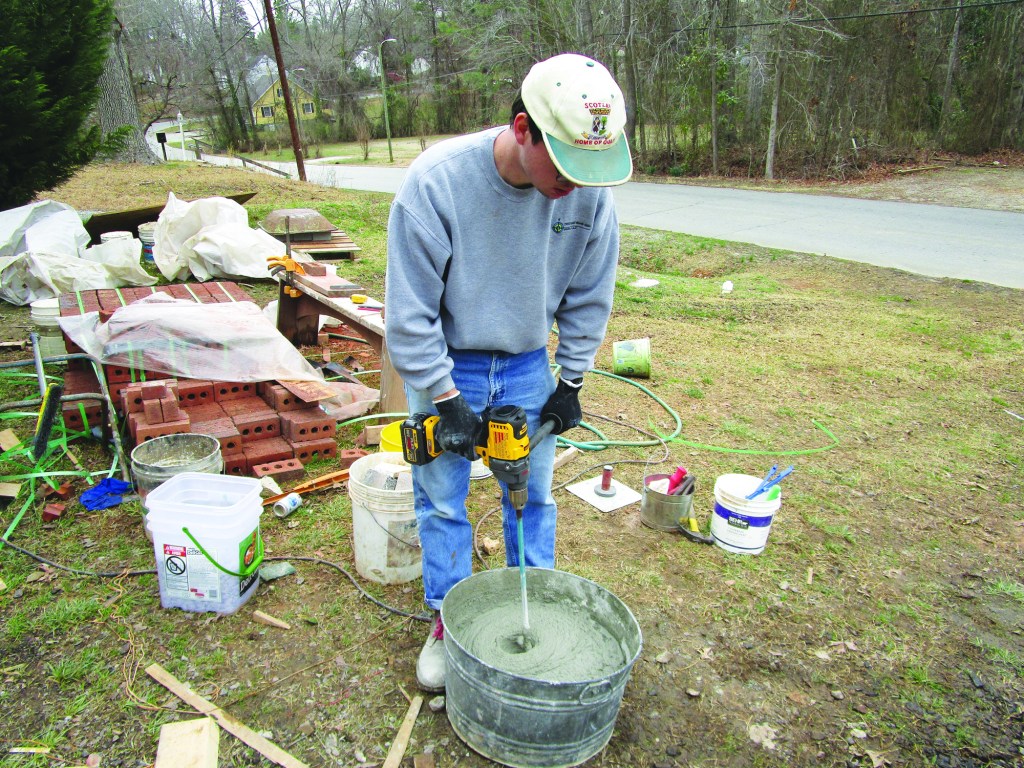Recently, I gave DeWalt’s DCD130 60V Max cordless mixer/drill a tough workout while building a brick stairway, the kind of job that involves mixing up a lot of concrete and mortar. While it doesn’t replace my favorite mixing tool (the Collomix Xo 4), I found it to be a stout cordless drill that can be used for drilling holes and driving screws in addition to mixing up mud for a variety of jobs. Powered by a 60-volt battery, it’s geared low and runs at the right speed for mixing. If the bit binds up, the drill will stop turning thanks to its E-Clutch, a nice safety feature for a tool with this much torque.
DeWalt says that the tool can mix up to nineteen premixed 4.5-gallon buckets of drywall mud, seventeen 5-gallon buckets of tile mortar, or nine 5-gallon buckets of concrete on a single charge, a claim that my testing confirmed. I was able to mix eleven 80-pound bags of concrete on a single charge. I also was able to mix mud for an entire day of somewhat slow brick masonry work, recharging the battery once at lunchtime.
At first, the keyed chuck was a source of frustration because the mixing paddle frequently came loose as I mixed mud. My theory is that forcing the paddle through the dry mixture as I mixed it with water while moving the paddle up and down to reach the bottom of the tub applied too much stress. So I tried to be careful about how much mud I mixed up at once, and with how I combined the materials. Instead of adding water to a dry mix, I measured the water and poured most of it in the bucket at the beginning, then mixed in half the sand and all the dry masonry cement to make a soupy slurry. Finally, I put in the balance of the sand, which seemed to produce a good, workable mix without straining the machine. I also cranked the chuck as tight as I possibly could (using both hands) to make sure the mixing paddle stayed put, and that annoying problem was put to rest.
The DCD130 won’t keep a masonry crew in mud or mix up more than a dozen bags of concrete, and it doesn’t have enough power to mix up drypack for a tile floor. It will, however, supply all the mud a small drywall or tile crew needs, and if you also do plumbing or electrical work, it will power hole saws and self-feed bits through lumber with ease. Price is $350 (kit); $220 (bare tool). dewalt.com
